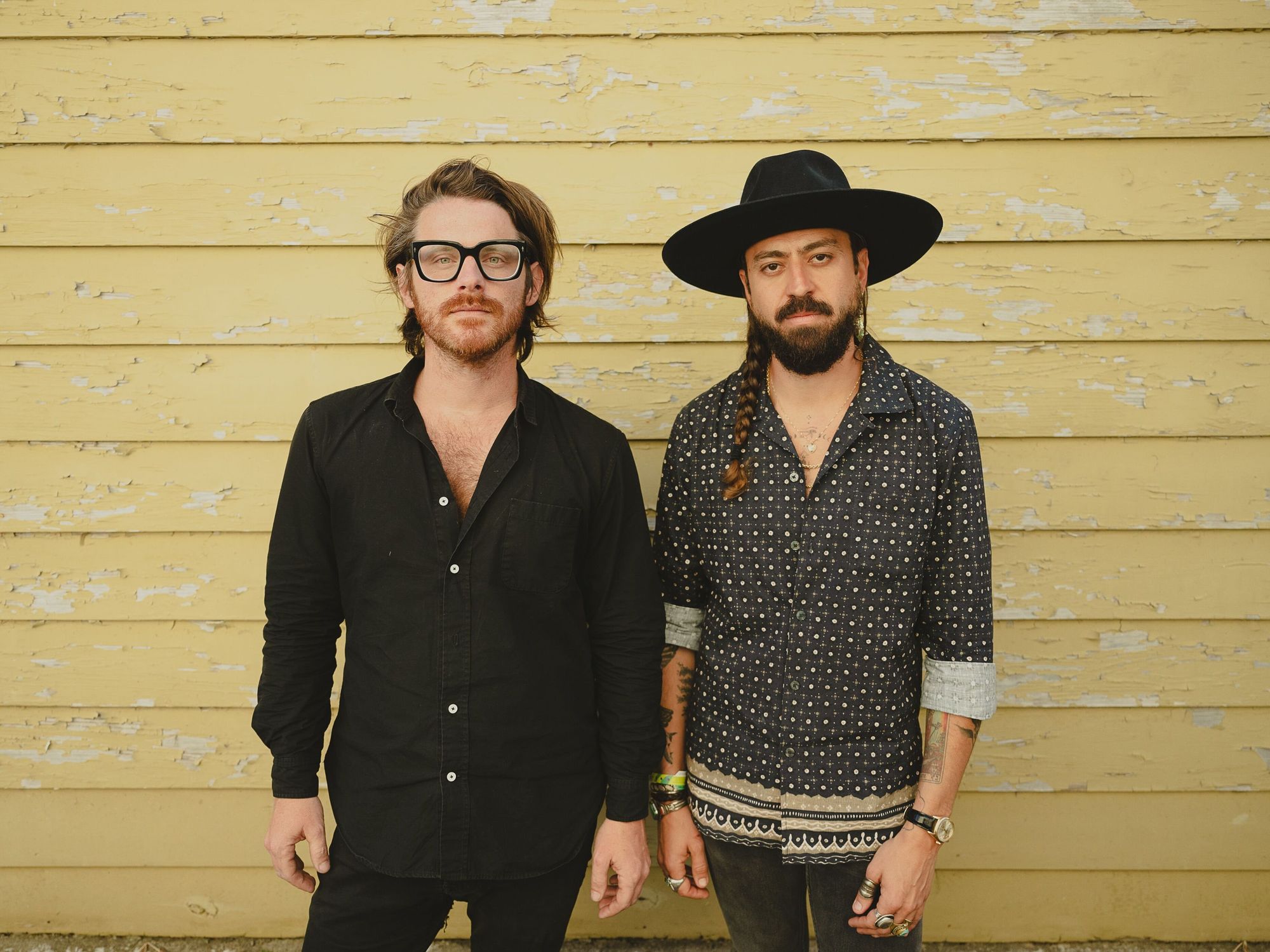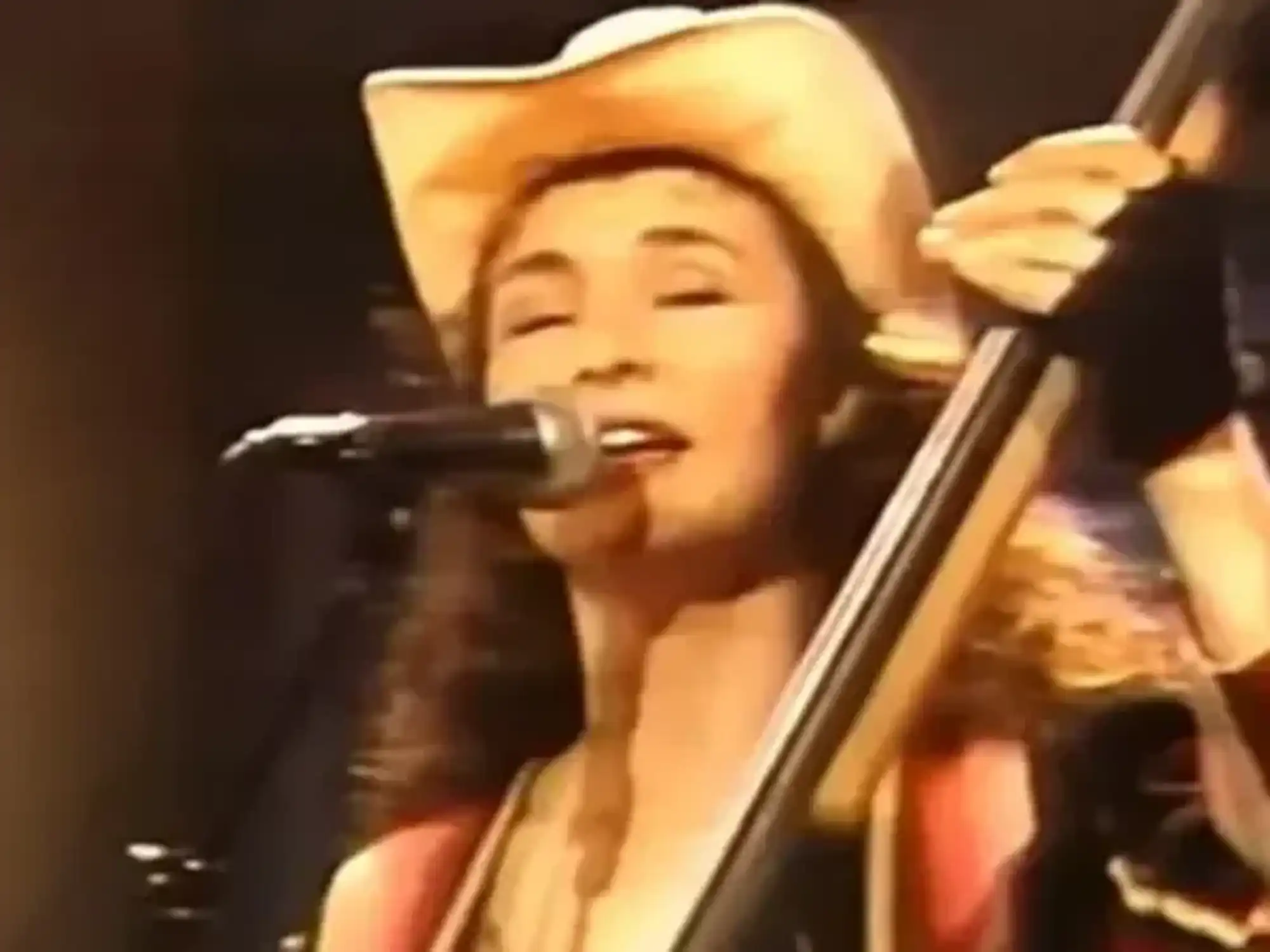recording in progress
Austin musicians turn anonymous secrets into songs in 3rd season of Song Confessional

Walker Lukens and Zac Catanzaro have been turning secrets into songs on the Song Confessional podcast.
Walker Lukens and Zac Catanzaro know a lot of secrets. The Austin-based songwriters and friends have convinced people around the world to tell them things they've never said out loud before in exchange for songs by the duo's famous friends. It all goes down in the Song Confessional podcast, which celebrated the release of its third season on February 7.
Every month, Song Confessional shares two new episdoes about one song; The first contains the confession and the song, and the second pulls back the curtain in an artist interview, where they talk about the songwriting process. Featured artists this season include Golden Dawn Arkestra, Woodbelly, Buffalo Hunt, Pigeon John, Babe Club, and more.
Next up for the duo is an appearance at South by Southwest — the place where it all started — where they'll collect more community secrets. Anyone can meet them there from March 13-16 from 8 am to noon as part of the KUTX Free morning shows at Scholz Garten. If Austinites can't make it there, they can also stop by the permanent confession booth at the Long Center at any time.
Before you decide to spill the beans, sit in on this conversation between CultureMap, Lukens, and Catanzaro about the Song Confessional podcast, the relational power of music, and the healing power of telling your secrets.
CultureMap: What was the initial inspiration for this project?
Walker Lukens: "We were touring in a band together for a couple of years in a row, getting pretty existentially bored and trying to hatch up some new things to do together. The kernel of this idea came from a woman [who] came to a show, and told me that one of the records had really helped her get through this terrible summer in her life when her mother passed away. And I was talking about it with Zach afterwards, saying, how cool would it be to actually make a song for someone about their experience? This album meant a lot to them, but none of the songs had to do with grieving in that way."
Zac Catanzaro: "The content was just too good not to share in some way. Nobody was hearing the confessions back then — they were hearing just the song. It was at the time that podcasts were getting popular, and I don't think Walker and I ever planned on starting a podcast, but the platform made sense for this project."
CM: It makes me think about when people have different experiences of the same song, and they think it means different things.
WL: "I mean, first off there is no right answer. Even if you know what the source material is, songs can mean a million things. But it does fascinate me in a neurotic Larry David way, when people have a song as their first dance at a wedding, and it's not a love song. I think "Let's Stay Together," that Al Green song, being the wedding song is bonkers. That song is literally about breaking up, [and] getting back together over and over again, is begging to stay together. But I think that there's nothing that an artist or songwriter can do to determine the intent in the message of a song. In our project, the fun for us [is that] it's just infinitely interpretable. It's fun to have a peek at finite, concrete thing that inspired a writer."
ZC: "That is the beauty of this project: how different songwriters, different artists interpret the source material that's inspiring them to write. Sometimes a song sounds kind of dark, but the confession isn't, or vice versa. Whatever emotions and whatever story they're getting out of that is so personal to that songwriter, that it bridges that gap of what how we all connect with music. It's always our own version, our own story, our own emotions."
CM: How do you choose how you're matching a confession with a songwriter?
ZC: "We collect so many more confessions than ever can turn into songs — thousands of confessions at this point. We start categorizing them by theme and emotion. It's trying to match the vibe of the story with the vibe of the artist [and] honoring those confessions in an appropriate way. We're not going to give a serious confession to, you know, Blink-182."
WL: "I'm learning from this that Zach has Blink-182 on the brain. I just want to know if that's because of all the eclipse talk. Are you thinking about aliens?"
ZC: "I don't know why that popped in my head right now. Great question. We give them a choice of two to three [confessions], so that the artists can really resonate with something. We don't want to just force a confession that they don't care about. Otherwise, the song's not going to be good if they don't feel any emotion behind it."
CM: Has there been any resulting song that has really surprised you?
ZC: "The first one was Croy and the Boys' "Don't Let Me Die in Waco." These either old teenage [or] young 20s men are having their first experiences with death across a weekend. So for them it's intense, but then the song is this tongue-in-cheek, hilarious football anthem."
WL: "In the confession, these boys are taking a Greyhound bus from Fort Worth to Austin to come party with their friends. Someone dies on the bus, and then the Greyhound very unceremoniously takes the dead body off of the bus in Waco. They Febreezed the seat where this guy had died, and then kept driving down to Austin, where they discovered that someone had just died in the dorm where they were going to stay. Corey Baum turned to this really morose confession into Texas shit-talking."
Lyrics from "Don't Let Me Die in Waco":
Don't let me die in Waco
Anywhere but there
I'd sooner die a Sooner or a dumbass Aggie than to go
In the land of the Baylor Bear
CM: Are there types of confessions that you get a lot?
WL: "'How I met my wife,' or 'how I met my husband.' 'I took mushrooms.'"
ZC: "So many 'I took mushrooms.'"
WL: "I actually really enjoy getting these: We get a lot of people coming in to tell us about like a big change they made later in their life. It doesn't always become a song, but a lot of people come in and tell us, because you can sense that they're proud of themselves for doing something bold."
ZC: "It's so profound to them, that it kind of makes you realize what a good story is. As long as somebody really feels connected to something, it can be good — the content doesn't always matter. It's the emotion behind it, and how a person conveys an emotion that can make a good story. Something as simple as 'I changed my job' can actually be a good story, whereas something like 'I ate mushrooms and tripped' — you think it's going to be a good story until you realize it's only funny to the person that was tripping."
CM: I read recently that people usually overestimate how upset people will be when they confess something. Have you witnessed any relief for those submitting confessions?
WL: "My takeaway from doing this project is people carry around things they feel bad about, and build it up in their souls in a way that is corrosive and terrible. And then they come tell someone. Not only is it never as bad as they think it is, but the actual process of telling other people is incredibly healing."
ZC: "We go to this event in Raleigh, North Carolina. There's this guy that comes back every year to give us an update on his life, and he's never had a song. He's just coming back to just keep talking. There's something about being there in that trailer, talking to us, that has just struck a chord with him."
WL: "We think our pain is so unique. We think what's fucked up about us is so unique. And when you hear it in a song, you have to let go of this idea that whatever you think is wrong with you is somehow just you and you alone. I think that there's something when you hear your experience become a song, or when you connect with a song in general, you just feel seen, like something's mirrored back to you. This woman who gave the confession that inspired the Buffalo Hunt song [that] comes out in March — I mean, this woman had never told this to anybody. She's literally giggling in the booth. She's like, 'It's funny I never told anyone this. I don't know why.' You just let it go."
ZC: "She didn't tell anybody for 40 years until she walked in that locker."
--
The Song Confessional podcast is available on Spotify. Individual songs are available wherever each artist allows their music to be streamed. Visit the Song Confessional booth at South by Southwest March 13-16 from 8 am to noon at Scholz Garten.
